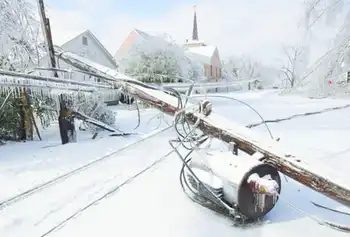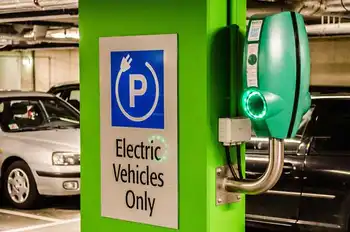Record demands for power require energy conservation
NORTH CAROLINA - Remember the ice storms of a couple of winters back? You would have given anything for a toasty warm house.
As temperatures in the Piedmonts latest heat wave approached triple digits, residents just wanted to keep cool.
Either way, customers turn to Duke Energy for answers. During those crippling winter storms, Duke, as the states major electricity provider, worked around the clock to get people back on line. But to avoid outages on sweltering August days, the solution is cutting back on usage.
As scorching temperatures moved eastward across the nation last week, thousands were left sweating as overloaded power grids failed. Though excessive summer heat can be just as life threatening as winters chill, no heat-related deaths were reported here.
Soaring temperatures call for conservation and common sense. When the mercury rises, set the thermostat on at least 78 degrees. Duke says for each degree cooled below 78, cooling costs can rise as much as 10 percent. Gov. Mike Easley says 80 degrees is fine in state offices. Thats sound advice even when the weather cools a bit.
But cutting back does more than lower electric bills. It also means the lights stay on and air conditioners hum during the unprecedented demand.
Other suggestions from Duke Energy worth considering: Use fans. Circulating air - even warm - is more comfortable than still air.
Avoid using appliances like washers, dryers and dishwashers until after 8 p.m. Turn off lights when possible, draw drapes to reduce heat buildup and avoid preparing hot meals.
At work, turn off computers before leaving. The sleep mode saves electricity. Go paperless. Copy machines and printers are big energy wasters.
Could it be we end up longing for August when the January forecast is for a half-inch of ice on power lines?
Related News

Canadian Scientists say power utilities need to adapt to climate change
TORONTO - The increasing intensity of storms that lead to massive power outages highlights the need for Canada’s electrical utilities to be more robust and innovative, climate change scientists say.
“We need to plan to be more resilient in the face of the increasing chances of these events occurring,” University of New Brunswick climate change scientist Louise Comeau said in a recent interview.
The East Coast was walloped this week by the third storm in as many days, with high winds toppling trees and even part of a Halifax church steeple. Nova Scotia Power says it has weathered nine storm days so…




